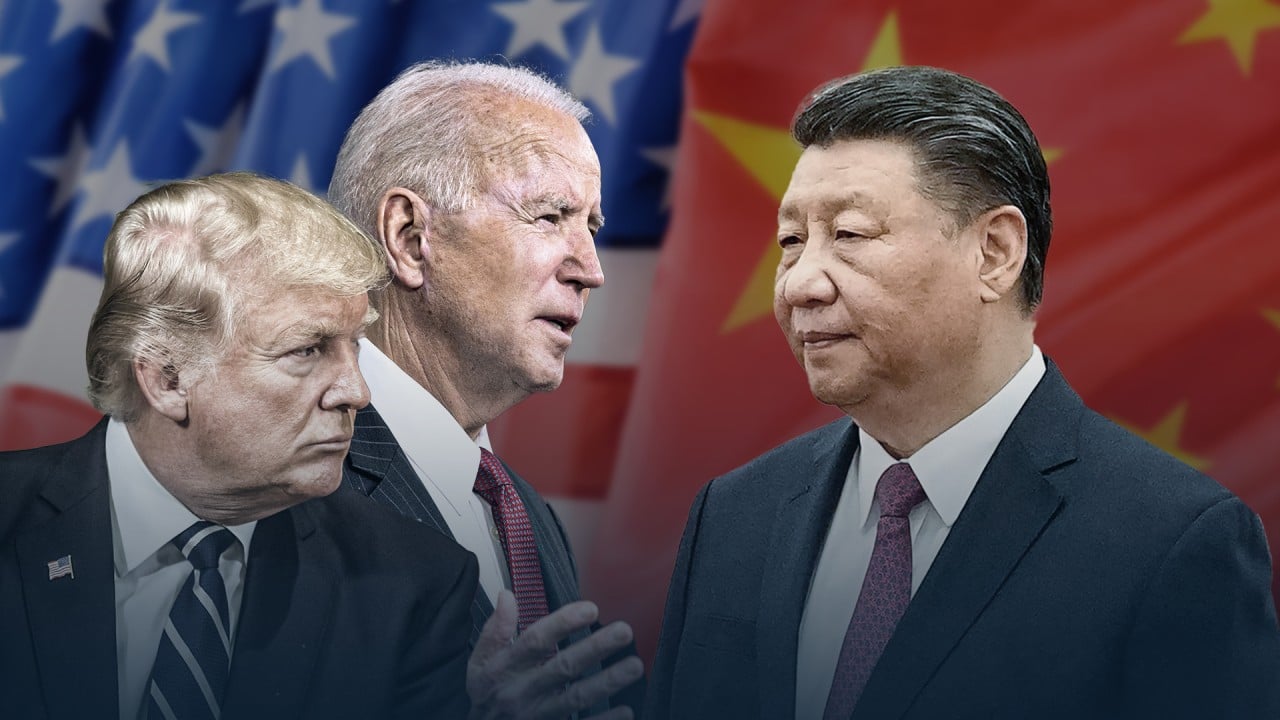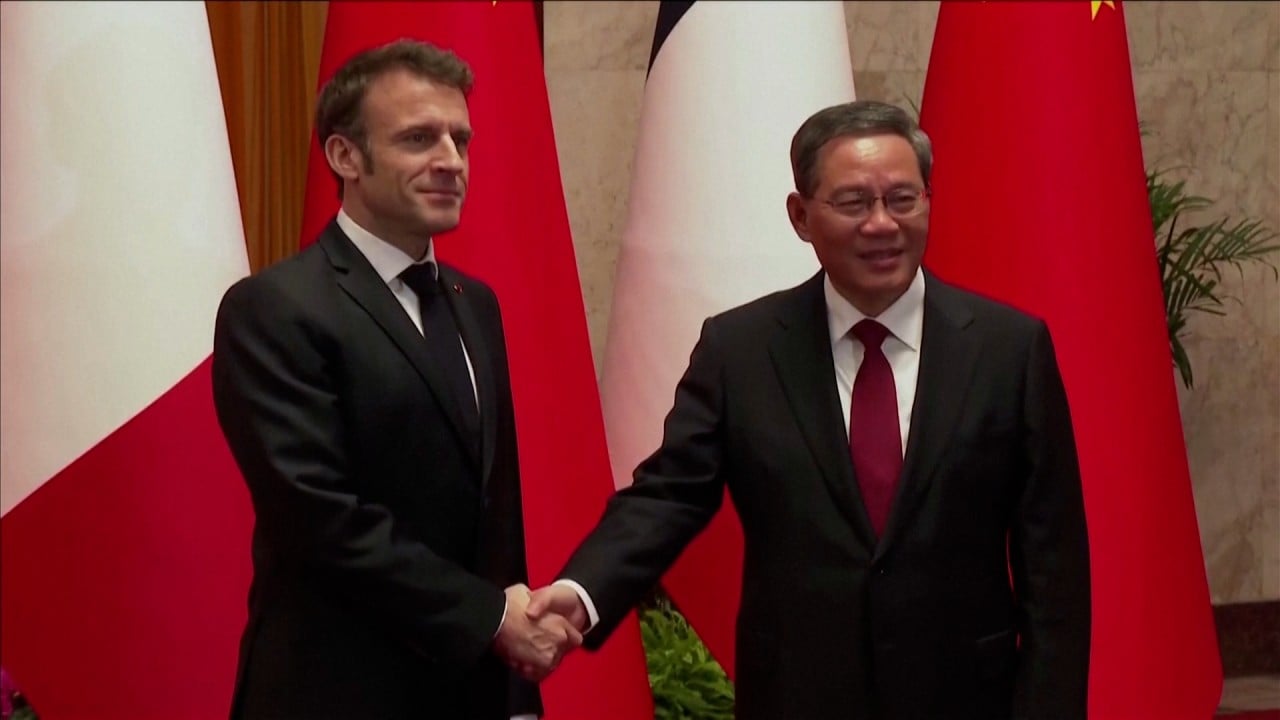
A ‘thaw’ in Germany’s ties with China? Berlin and Beijing commit to closer financial cooperation
- Dialogue between the two countries is recovering, with top-level commitments on the weekend, analyst says
- Berlin’s continued backing for the China-backed Asian Infrastructure Investment Bank will send a reassuring signal to Beijing, observer says
The commitment, made in Frankfurt at the first high-level financial dialogue in four years, also underlined Berlin’s rejection of decoupling, observers said.
The contact takes place against a backdrop of a tougher German strategy on China and growing calls in the European Union to “de-risk” ties with Beijing.
Wang Yiwei, a China-EU specialist at Renmin University in Beijing, said the finance meeting was a significant step towards a thaw in China’s relations with Germany and Europe.
“The dialogue mechanism is recovering,” he said, adding that events such as last month’s China-EU high-level economic and trade dialogue and the coming China-EU summit are all positive signs of a “warming” in ties between China and Europe.
“Germany and China both value [the financial dialogue].”
After the meeting with Vice-Premier He Lifeng on Sunday, German Finance Minister Christian Lindner said the two parties had a “very constructive and open” discussion and hoped that the meeting, held every two years, could become an annual event.
Lindner also said Germany and China were committed to expanding market access, which would bring opportunities for trade and investment for both sides.
Wang said: “Germany now has more consensus, especially among its businesses, that risks are everywhere, but opportunities in China are irreplaceable.”
Thorsten Benner, director of the Berlin-based Global Public Policy Institute, said the meeting felt like “travelling back in time into the peak of the German-Chinese relationship during the [Angela] Merkel years – as if the de-risking agenda had never happened”.
“Lindner did not publicly address a single critical issue with Beijing,” Benner said.
“It’s fine for Germany to send signals that it’s interested in cooperating with Beijing, but it should find ways to do this in a less sycophantic way.
“Beijing will certainly be pleased by this meeting that runs counter to some of the tougher language by the EU Commission.”
The risks in the relationship were at the forefront in July when Berlin released its first China strategy, in which it highlighted the need to reduce economic dependence on China and persist with its long-standing calls for a “level playing field” for German and Chinese businesses.
But Berlin stressed that its “de-risking” strategy did not mean “decoupling” from its biggest trade partner.
Trade between the two countries has remained strong, despite the pandemic and geopolitical tensions. Bilateral trade reached a record €298 billion (US$315 billion) last year, with Germany recording a trade deficit of around €84 billion, according to the German statistics office.
Berlin’s approach is largely in line with that of its Western allies – it has labelled China as a national security “threat” and its interior ministry is weighing a ban on Huawei equipment in its telecoms networks.
However, Germany is hesitant to take tougher measures that will harm its economy.
In particular, German Chancellor Olaf Scholz has urged caution on a European Union investigation into subsidies for Chinese electric vehicles, warning against trade protectionism and calling for fair “global competition”.
Frederick Kliem, a Germany expert at the S. Rajaratnam School of International Studies at Singapore’s Nanyang Technological University, said Germany was “very wary” of any retaliatory measures by China in response to the EU investigation.
Kliem said Germany was the biggest EU exporter to China and would be the worst hit by any retaliation.
There was no mention of EVs from either side in the public statements on Sunday because they each had only “limited influence on the proceedings”, he said.
But the overall positive exchanges during the meeting showed Berlin still saw China as an integral part to all global solutions and a valuable economic partner.
“Beyond the occasional political rhetoric … China-Germany economic relations are strong and reasonably healthy,” Kliem said.
“Both sides are committed to maintaining global economic connectivity – in other words: both are strong defenders of, and great beneficiaries from, globalisation. Thus, cooperation remains a win-win for both sides.”
Beyond the occasional political rhetoric … China-Germany economic relations are strong and reasonably healthy
Austin Strange, an assistant professor in international relations at the University of Hong Kong, said China would likely see Germany’s support for the AIIB as reassuring.
“Given Canada’s decision earlier this year to revisit its relationship with the AIIB, Germany’s reaffirmation of its cooperation within the AIIB is likely reassuring to China’s government,” Strange said.
“And it likely reflects a viewpoint that it is better to try to influence the AIIB’s trajectory from within rather than from the outside.”
Canada froze its ties with the China-backed development bank earlier this year after a former communications officer said the bank was “dominated by the Communist Party”, a suggestion rejected by Beijing.

 - Kawala Xie.jpg?itok=NogZcyZ-&v=1661304068)

